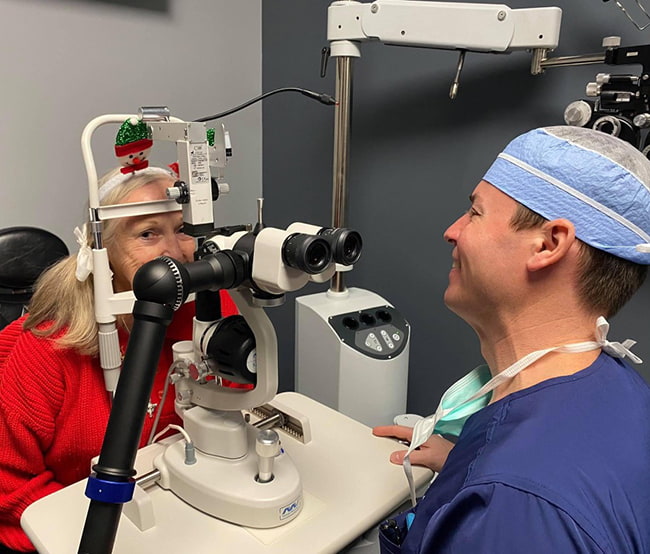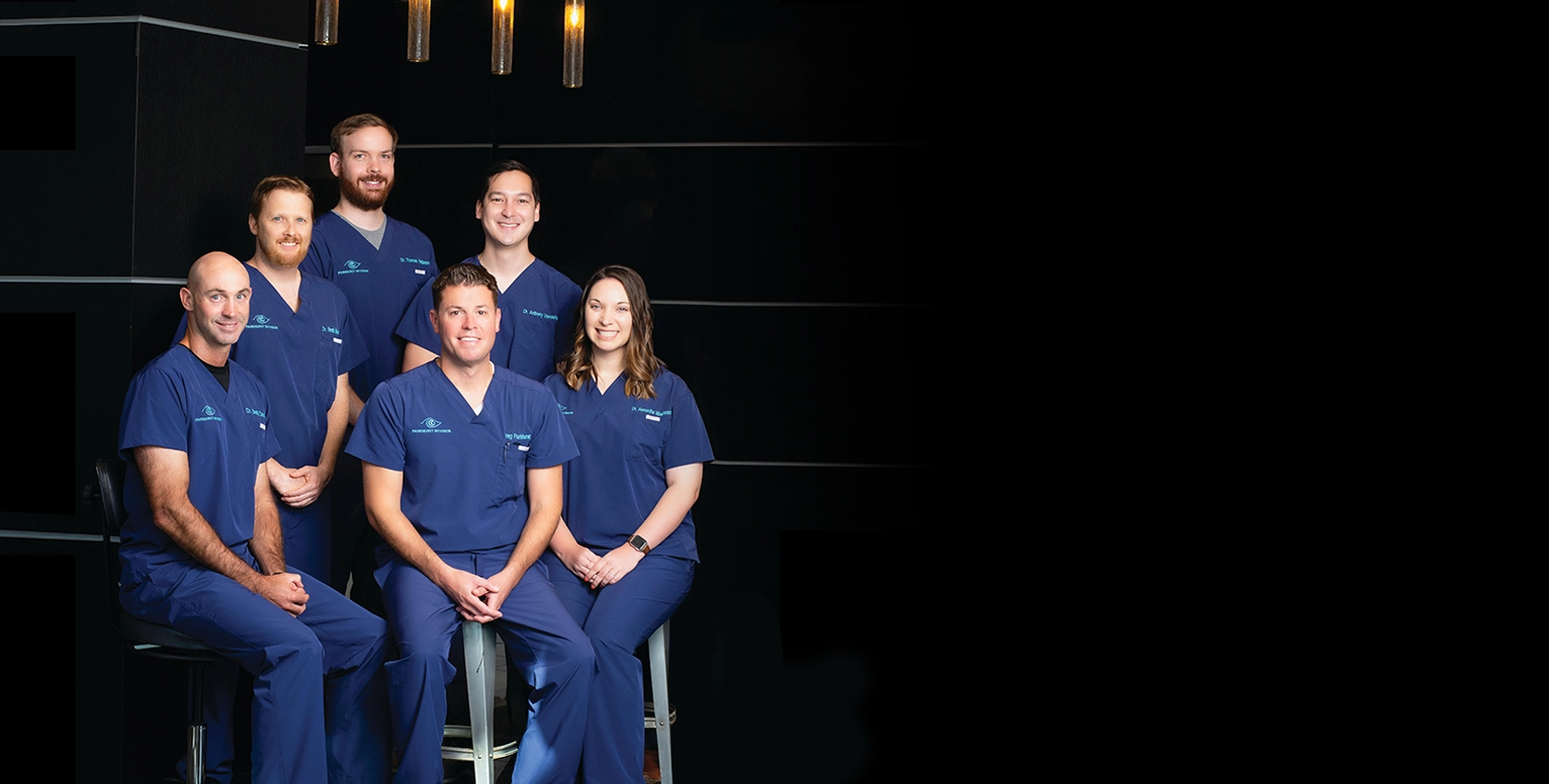What Causes Cataracts?
Cataracts are a naturally occurring part of the aging process. According to the National Eye Institute, over 20 million Americans over the age of 40 have cataracts.3 While they are as much a part of getting older as gray hair or fine lines, there are some things that may make you more susceptible to getting cataracts at an earlier age.
How Does Cataract Surgery Work?
Cataracts are a change in the proteins of the lens of the eye, which causes a loss of clarity. Think of the eye like a camera—the lens needs to be clear in order to get a good picture. Similarly, in a healthy eye the lens refracts light and helps it focus on the retina in order to create clear vision. In an eye with cataracts, protein builds up on the lens, preventing light from passing through normally. In cataract surgery, the eye’s clouded lens is replaced with an artificial lens called an intraocular lens or IOL that is once again clear.
Laser Cataract Surgery
Our eye doctors work hard to stay on the forefront of vision technology. We offer a range of cataract surgery treatments, including laser cataract surgery. Laser cataract surgery is considered by many to be a less invasive method of removing the cloudy lens that is gentler on the eye with more consistently accurate results.6
Our cataract surgeons use the highly advanced LENSAR platform, which enables us to conduct surgery with up to 10x the accuracy of basic manual cataract surgery with 3D eye imaging, laser-precise micro-incisions, and easy lens removal and replacement. Our Medical Director and Founder of Parkhurst NuVision, Dr. Gregory Parkhurst, performed the first LENSAR laser cataract procedure in San Antonio. Along with LENSAR, we use diagnostic scanning technology during the procedure, which allows us to confirm the placement of the new lens and control your visual outcomes to the highest degree of accuracy!
IOLs available for Cataract Surgery
Parkhurst NuVision offers the widest variety of IOL solutions that are available in San Antonio. If you have always struggled with vision problems, such as nearsightedness or astigmatism, cataract surgery with a vision correcting IOL is a unique opportunity to permanently address multiple vision issues at once. The right IOL can even eliminate your need for glasses! In addition to basic IOLs known as monofocal lenses that correct vision at a single distance, we offer multifocal and trifocal IOLs to improve vision at a full range, so you can see from near to far seamlessly, often without the need for any glasses including reading glasses. Every eye is different, so even people who have been told they don’t qualify for multifocal IOLs in the past now have options to have complete vision. These include lenses such as accommodating IOLs, and light adjustable lenses. Our cataract doctors will determine which type of IOL will best fit your life and vision needs.
Learn more about IOLs used in cataract surgery today
1 University of Michigan Kellogg Eye Center. Cataract. Available: https://www.umkelloggeye.org/conditions-treatments/cataract Accessed January 10, 2021.
2 Mayo Clinic. Cataract Surgery. Available: https://www.mayoclinic.org/tests-procedures/cataract-surgery/about/pac-20384765. Accessed December 14, 2021
3 National Eye Institute. Cataract Data and Statistics Available: https://www.nei.nih.gov/learn-about-eye-health/outreach-campaigns-and-resources/eye-health-data-and-statistics/cataract-data-and-statistics Accessed December 15, 2021
4 American Academy of Ophthalmology. Cataracts. Available: https://www.aao.org/eye-health/diseases/what-are-cataracts#symptoms Accessed December 15, 2021.
5 Refractive Surgery Council. Cataract Surgery Available: https://americanrefractivesurgerycouncil.org/cataract-surgery/ Accessed December 15, 2021.
6 American Academy of Ophthalmology. Traditional Cataract Surgery vs. Laser-Assisted Cataract Surgery. Available: https://www.aao.org/eye-health/diseases/traditional-vs-laser-assisted-cataract-surgery Accessed December 14, 2021
7 Mayo Clinic. Cataracts. Available: https://www.mayoclinic.org/diseases-conditions/cataracts/symptoms-causes/syc-20353790 Accessed June 30, 2021
8 Cleveland Clinic. Cataract Surgery. Available: https://my.clevelandclinic.org/health/treatments/21472-cataract-surgery#risks–benefits Accessed December 14, 2021.









